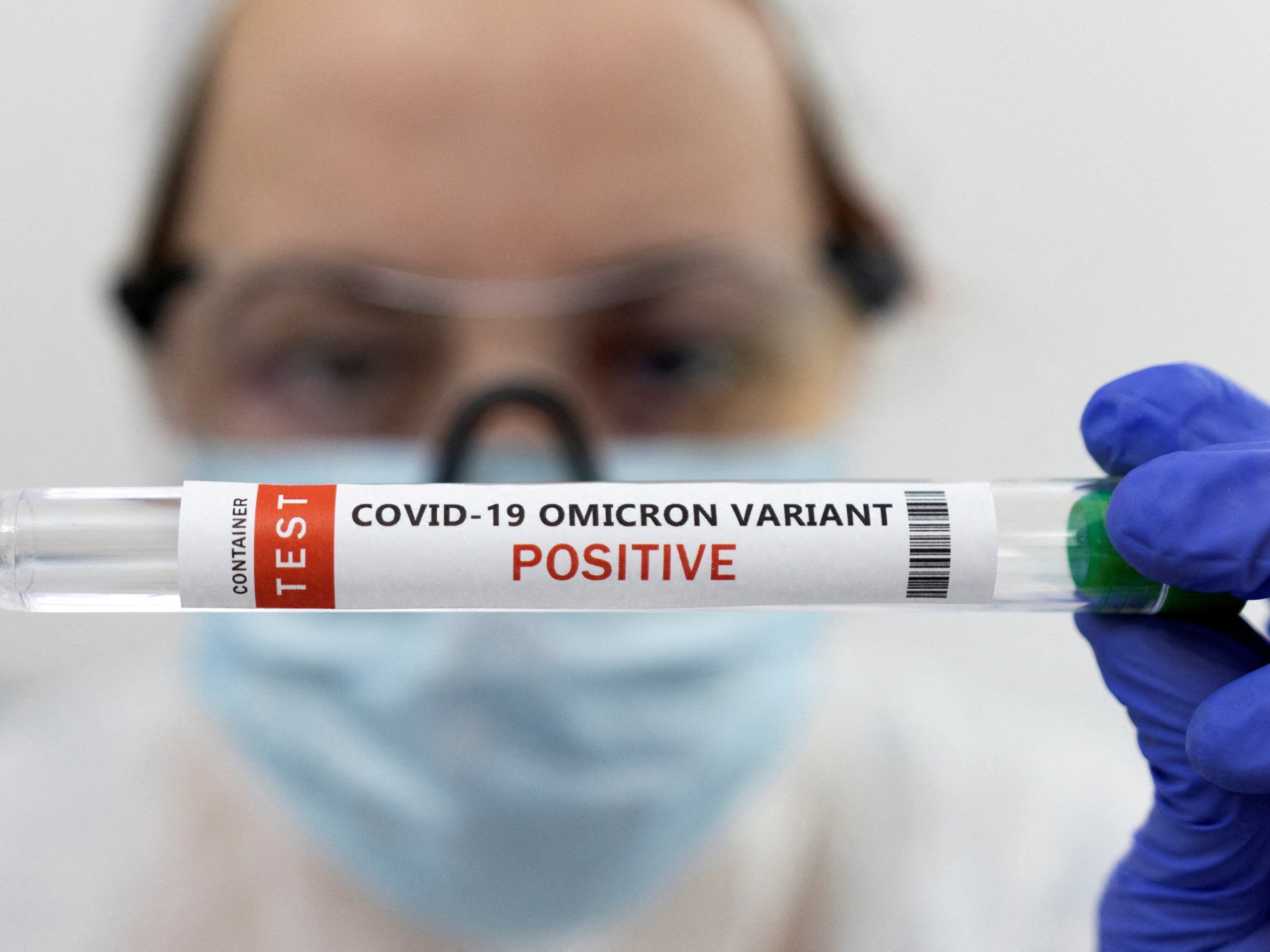Ten months after getting COVID, people still have an 88 percent lower risk of reinfection, hospitalisation and death, the report by The Lancet medical journal says.
The protection against COVID-19 from being previously infected lasts at least as long as that offered by vaccination, according to a new study published in The Lancet medical journal.
One of the largest studies based on data from 19 countries found that “natural immunity” reduces the risk of hospitalisation and death by 88 percent for about 10 months.
That makes the natural immunity “at least as durable, if not more so” than two doses of Pfizer or Moderna’s vaccines, the study published on Friday said.
“Our findings show that immunity from COVID-19 infection confers substantial protection against infection from pre-Omicron variants,” the authors noted.
But the report also found that protection gained from an earlier infection may erode more quickly when faced with newer coronavirus variants like Omicron.
“The studies that are available on Omicron suggest that past infection is very good at preventing severe disease and hospitalisation, but both vaccination and infection do not give as much immunity stopping you from getting sick. That’s the notion of immune-escape,” Chris Murray, co-author of the report, told Al Jazeera.
“Omicron has been able to evade past immunity and infect you, but fortunately not necessarily cause severe disease and death,” said Murray, the director of the Institute for Health Metrics and Evaluation at the University of Washington School of Medicine.
“The immunity conferred by past infection should be weighed alongside protection from vaccination when assessing future disease burden from COVID-19,” the report authors said, adding that guidance should be provided on issues such as when a person should be vaccinated or when “designing policies that mandate vaccination for workers or restrict access.”
The researchers reviewed 65 studies from 19 countries up to September 2022, meaning some covered the period when Omicron swept across the world.
According to the authors, protection from past infection was “very high” against reinfection from pre-Omicron variants and “remained high even after 40 weeks”.
“Protection was substantially lower for the Omicron BA.1 variant and declined more rapidly over time than protection against previous variants,” they added.
However, “protection from severe disease was high for all variants,” the authors noted.
Moreover, people with natural immunity from a pre-Omicron variant saw their protection against reinfection wear off much more quickly for the early Omicron strains, dropping to 36 percent after 10 months, the study said.
‘Vaccines important’
The authors emphasised that their findings should not discourage vaccination, which remains the safest way to get immunity.
[The] infection does give you some long-lasting immunity but it is a lot safer to get vaccinated because if you have not had the disease and if you have not been vaccinated, you are at a substantial risk the first time you get infected,” Murray said.
“If you are in a high-risk category: over the age of 60, some comorbidities, diabetes or high body mass index, then you really need to keep your level of immunity up. So, a booster is a very smart strategy to pursue,” he said.
The study also gives a more accurate picture of what COVID might look like in the future, as more vaccinated people are reinfected, acquiring “hybrid immunity”.
“In the long run, most infections will occur in people with strong protection against severe disease because of previous infection, vaccination, or both,” said Cheryl Cohen, an epidemiologist at South Africa’s National Institute for Communicable Diseases.
“These results suggests that, similar to other human coronaviruses, there might be a low seasonal hospitalisation burden” associated with COVID, Cohen said, in a Lancet commentary.
